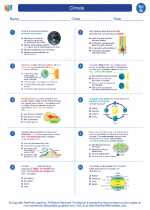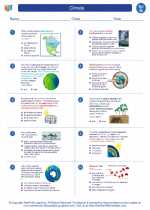Climate -> genetic engineering
Genetic Engineering
Genetic engineering, also known as genetic modification or genetic manipulation, is the process of altering the genetic makeup of an organism. This can involve the transfer of genes from one organism to another, or the modification of an organism's existing genes.
Key Concepts
- Genes: The units of heredity that are passed from parents to offspring and determine an organism's traits.
- Recombinant DNA: DNA that has been artificially created by combining genetic material from different sources.
- Biotechnology: The use of living organisms or their products to modify human health and the human environment.
- CRISPR: A revolutionary gene-editing technology that allows for precise modification of an organism's DNA.
Applications of Genetic Engineering
Genetic engineering has a wide range of applications, including:
- Creating genetically modified crops with improved resistance to pests and diseases.
- Producing pharmaceuticals, such as insulin, through genetically modified organisms.
- Developing gene therapies for treating genetic disorders.
- Engineering bacteria to produce biofuels and other industrial chemicals.
Ethical and Social Considerations
Genetic engineering raises ethical and social concerns, including:
- The potential for unintended environmental consequences from releasing genetically modified organisms into the wild.
- The ethical implications of editing the human germline and potentially altering the course of human evolution.
- The unequal access to genetic technologies and the potential for exacerbating existing social inequalities.
Study Tips
Here are some tips for studying genetic engineering:
- Review the basics of DNA structure and function.
- Understand the techniques used in genetic engineering, such as PCR, gene editing, and cloning.
- Explore the real-world applications of genetic engineering in agriculture, medicine, and industry.
- Consider the ethical and societal implications of genetic engineering.
- Practice with sample problems and case studies to apply your knowledge.










